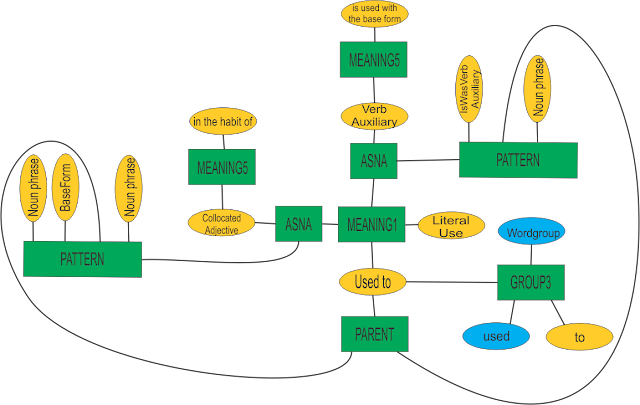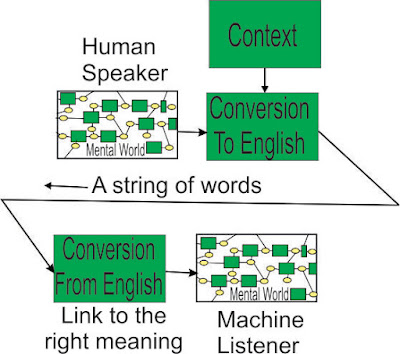Used To
He is used to being the underdog.
He used to come here often.
He used to be a boxer.
The rake used to aerate the soil
The rake is used to aerate the soil.
The rake used to aerate the soil was stolen. The
rake (that was) used to aerate the soil …
The rake used to be used to aerate the soil.
Making “used to” into a wordgroup immediately will lead to a
lot of grief. One possible way is to have patterns of acceptance, so it is
checked for the right meaning –
something like
Person IsWasVerbAuxiliary used to NounPhrase
Person IsWasVerbAuxiliary used to ParticipialPhrase
Something used
to BaseForm
Something IsWasVerbAuxiliary used to BaseForm
Something (that
was) used to Baseform NounPhrase VerbPhrase
Something used
to PassiveVerbPhrase
The different meanings are hung on the limbs of a MEANING1,
and require validation against other objects in the sentence before proceeding.
Some objects in the pattern are beyond the current object, so if the words before the possible wordgroup succeed, a decision can’t be made until all the objects in the patterns are determined – we have to wait to find out if the words really do form a wordgroup, or the only option is LiteralUse.
There are 150 wordgroups where LiteralUse is a possibility
(and that number is probably low), so worth getting right.
But what do we return if we search for parents of “used to”?
We could have “searchable structure”, meaning without more
information (a string of words), we cannot know.
Are there any single words we should be using this technique
on – that is, rather than returning various POS, we check whether they are
feasible in the sentence first?
He switched the light on and left the room. “on” can’t be a
preposition. Wouldn’t help with “He switched on the light”.
It sounds like “turn on” can do with two variants – one with
preposition and one with adverb – “he turned on the light”, “he turned on them”.
Others – “he fell down”, “he fell down the well”, “the
soldiers fell in”, “the stock fell in value”.



Comments
Post a Comment